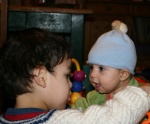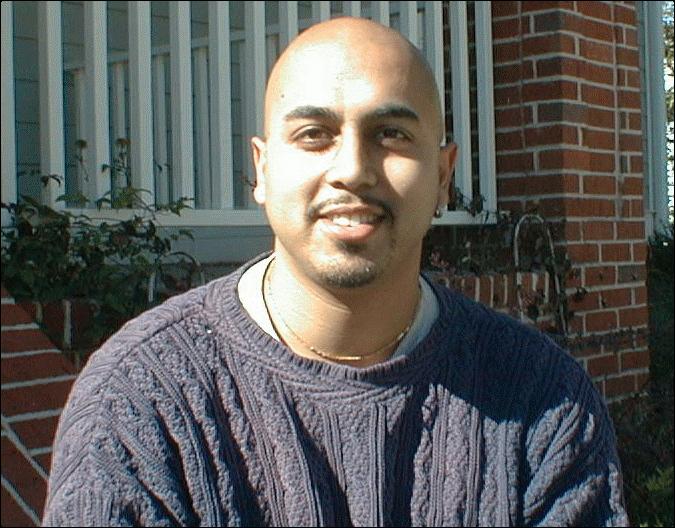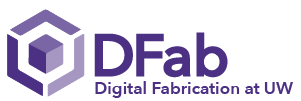Research | Students | Teaching | Bio | CV | Advice | Fun | Contact
Research
My work focuses on assistive technologies for access, health and wellness, and takes a multifaceted approach that includes machine learning, 3D printing, and tool building. At a high level, my goal is to tackle the technical challenges necessary for everyday individuals and communities to solve real-world problems (see all the Make4all projects).
Some of my most recent projects:
Your Portfolio Archive currently has no entries. You can start creating them on your dashboard.
Students
Current PhD students:
Yasaman Sefidgar; Megan Hofmann (co-advised with Scott Hudson); Mark Baldwin (co-advised with Gillian Hayes)
Former PhD Students:
Nikola Banovic (co-advised with Anind Dey); Christian Koehler; Sunyoung Kim; Scott Carter; Tara Matthews; Julia Schwarz; Tawanna Dillahunt; Amy Hurst; and Kirstin Early.
Your Portfolio Archive currently has no entries. You can start creating them on your dashboard.
I love to work with undergraduate and masters students and have mentored more than I can count. My mentorship always tries to include career advice as well as project advice, whether students are going on to research or not. Many undergraduate students I advised have gone on to careers in research, however, including some current faculty (Julie Kientz, Gary Hsieh, Ruth Wylie). There are at least 50 other students who are alumni of my group who are not currently listed on this page but who all made important contributions to my work over the years. Some current mentees:
Your Portfolio Archive currently has no entries. You can start creating them on your dashboard.
Recent Alumni I mentored/advised:
Your Portfolio Archive currently has no entries. You can start creating them on your dashboard.
Additional alumni can be found on the People page.
Teaching
I love to teach, and have put significant time into curriculum development over the years.
CLASSES DEVELOPED FOR AND TAUGHT AT CMU
- I am currently developing a new course on data centric computing, called The Data Pipeline. The course is accessible to novice programmers and includes a series of tutorials that can support independent online learning.
- I helped to redesign the HCI Masters course User Centered Research and Evaluation, specifically bringing a real world focus to our skills teaching around contextual inquiry
- I developed an online course specifically for folks who want to know enough program to be able to prototype simple interfaces (targeted at our incoming masters students). The course is available free online at CMU’s Open Learning Initiative under “Media Programming”
- I developed and taught the Environment and Society course over the last five years. This was a project oriented course that took a very multifaceted look at the role of technology in solving environmental problems.
- I helped to develop a reading course that is required for our PhD students to ensure that they have depth in technical HCI: CS Mini
- Assistive Technology: I developed and taught one of the first Assistive Technology courses in the country (specifically from an HCI perspective), and I used a service learning model to do so. Original class
- I have helped to revamp Process and Theory over the years, a skills course intended for our first year PhD students.
Bio
My Bachelor’s of Arts was done at Oberlin College, where I was a member of two great societies — FOO and ACM. I received my Ph.D. as a member of the Future Computing Environments research group in the College of Computing at Georgia Tech , Gregory Abowd and Scott Hudson were my advisors. I then spent three formative years at UC Berkeley as an Assistant Professor working with the I/O group and 12 years at CMU before joining the faculty of the University of Washington. My “Academic genealogy” on the Abowd side.
Bio: Jennifer Mankoff is the Richard E. Ladner Professor in the Paul G. Allen School of Computer Science & Engineering at the University of Washington. Her research focuses on assistive technologies for equal access, health and wellness, and takes a multifaceted approach that includes machine learning, 3D printing, and tool building. Jennifer applies a human-centered approach that combines empirical methods and technical innovation. For example, she has designed 3D-printed assistive technologies for people with disabilities.
Jennifer received her PhD at Georgia Tech, advised by Gregory Abowd and Scott Hudson, and her B.A. from Oberlin College. Her previous faculty positions include UC Berkeley’s EECS department and Carnegie Mellon’s HCI Institute. Jennifer has been recognized with an Alfred P. Sloan Fellowship, IBM Faculty Fellowship and Best Paper awards from ASSETS, CHI and Mobile HCI. Some supporters of her research include Autodesk, Google Inc., the Intel Corporation, IBM, Hewlett-Packard, Microsoft Corporation and the National Science Foundation.
Other Thoughts and Links
|
Best conference experience ever: The CHI2009 Straggler’s Seder |
Things I love (below)
 |
|
| Picture of my children, Kavi and Elena | Artwork I’ve done |
 |
 |
||
| My Viola | My Husband | My dogs: Demi, Nugget, Gryffin | |
Contact Information
Jennifer Mankoff
jmankoff [at] acm.org
206-685-3035
Paul G. Allen School of Computer Science & Engineering
University of Washington
Paul G. Allen Center
185 Stevens Way
Campus Box 352350
Seattle, WA 98195

